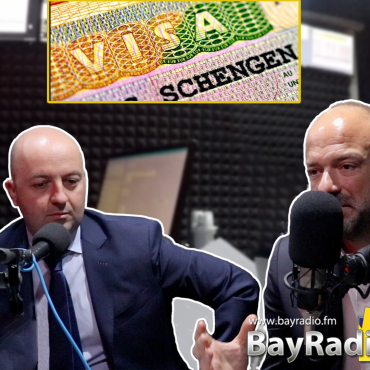
As Britain prepares to leave the EU on Friday, Sky News answers some of the key questions about how your life could be affected by Brexit.
Brexit Night Live: Watch and follow the moment Britain exits the EU with a special programme from 9pm on Friday 31 January.
Brexplainer: Key Brexit questions answered
Participant say: Do I need to do anything different if I’m travelling to Europe?
Sam Coates say: Until the end of December, nothing will change. Next year, new rules apply. You will not need a visa to travel to the EU as a tourist so long as you are there no more than 90 days in a 180 day period. You may need a visa or permit to stay for longer, to work or study, or for business travel.
Participant say: What happens to EU citizens living in the UK?
Sam Coates say: The rights and status of EU, EEA and Swiss citizens living in the UK will remain the same until 30 June 2021. If their application to the government’s settled status scheme is successful, they will be able to continue living and working in the UK after that date.
Participant say: What about British citizens living on the continent?
Sam Coates say: If they are living in an EU country before 31 December, the UK and EU have agreed they will broadly the same entitlements to work, study and access public services and benefits as they do now.
Participant say: I’m thinking about studying in Europe, will I still be able to do this?
Sam Coates say: The rules are not yet clear for studying in the EU after Brexit. UK students going to the EU will likely need visas and there may not be access to existing facilities under schemes like Erasmus. Existing students will have their course funding underwritten by the UK government.
Participant say: What will happen to the value of the pound?
Paul Kelso say: Currency markets are closed at weekends so any impact will not be seen until the morning of Monday, 3 February, but there is no expectation of an impact on Sterling. The UK’s formal departure from the EU is already priced in, and will have less impact than resolution of the many questions about the future relationship with the EU that remain unanswered.
Participant say: Will there be an impact on house prices?
Paul Kelso say: House prices reflect domestic economic circumstances, principally interest rates and wider consumer confidence. The former are low and could get lower, helping buyers, but there is precious little of the latter. Political uncertainty may have contributed to a slow down in the housing market in the last year but the Brexit effect may be overstated. The Office for Budget Responsibility predicted a no-deal departure could wipe 10% off house prices but an orderly departure will not cause shock waves in the short-term.
Participant say: Will mobile phone roaming charges go up?
Paul Kelso say: Maybe. There will be no change in the short-term because, until December 31, the UK will be in a transitional period that will see current EU rules that ban roaming charges. But future charges will depend on the outcome of trade negotiations and the operators, most of whom have said they have no plans to remove inclusive roaming arrangements post-Brexit.
Participant say: Can I still use my European Health Insurance Card?
Alan McGuinness say: Your EHIC will be valid until the end of the transition period in December, what happens to the scheme after that will be decided in negotiations on the future relationship.
Participant say: Will I be charged for using my bank card in the EU?
Alan McGuinness say: No. Britain’s exit from the EU will not affect this.
Participant say: If I drive to Europe, will I need to do anything different?
Alan McGuinness say: Not during the transition period. But after that, you might need to buy an International Driving Permit (IDP) to drive in some EU states. This will depend on what sort of future relationship is negotiated between Britain and the EU. IDPs are available over the counter at Post Office branches.
Participant say: If I buy products from Europe, will I now be charged more?
Alan McGuinness say: Because Britain will continue to follow EU rules and regulations during the transition, goods will not become more expensive overnight. But the price of some items could go up, depending on what sort of trade deal is negotiated between the two sides.
 play_arrow
play_arrow










